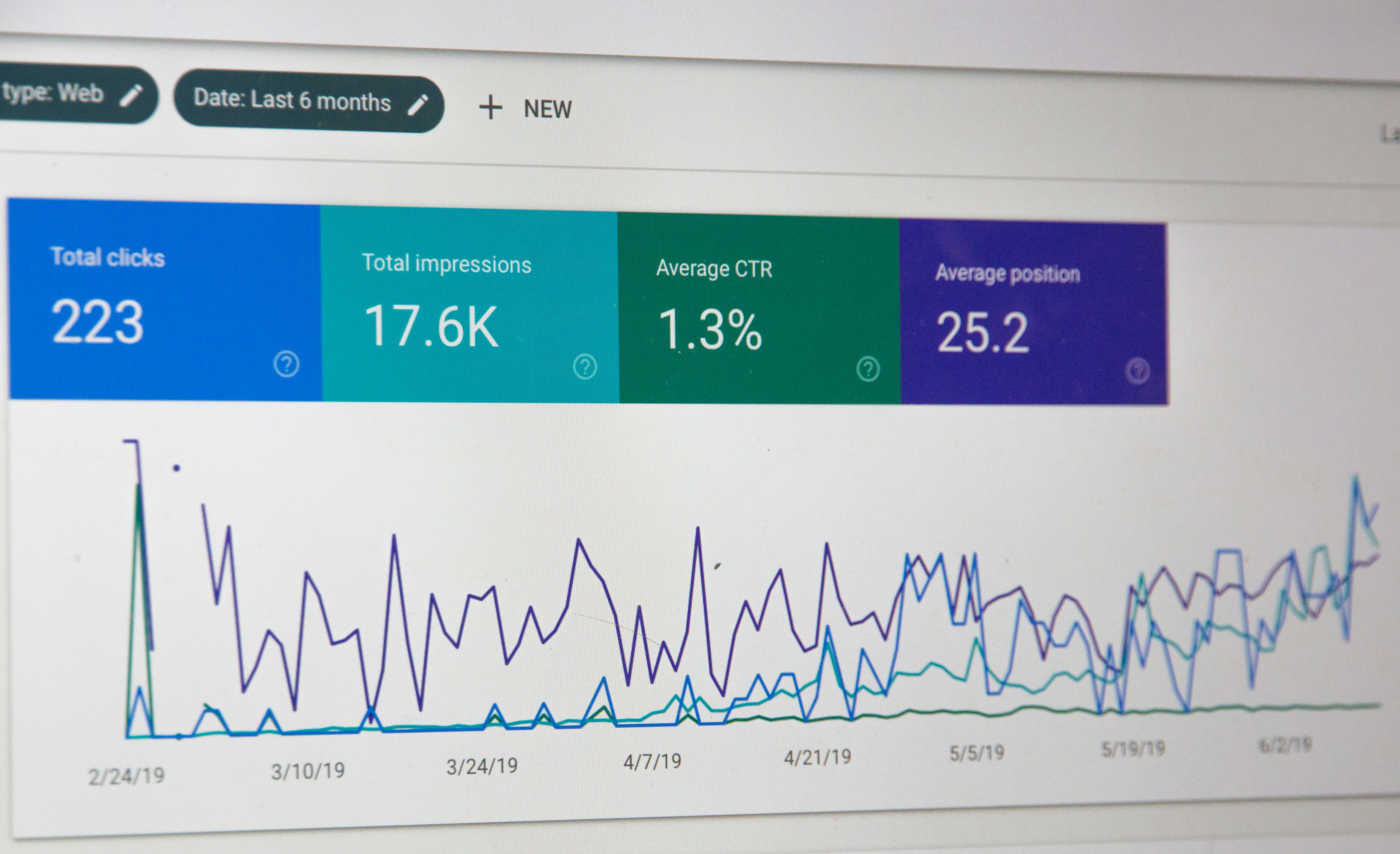
Understanding AI Marketing Automation
In today's digital age, marketing automation has become a necessity for businesses looking to streamline their processes and engage with customers more effectively. The integration of artificial intelligence (AI) into marketing automation has revolutionized the way companies approach their marketing strategies. Understanding AI marketing automation is crucial for staying ahead in the competitive landscape and maximizing the potential of your marketing efforts.
In this blog post, we will delve into the fundamentals of AI and marketing automation, exploring how AI enhances marketing automation and why it is a game-changer for businesses. From the role of AI in data analysis to personalized marketing strategies, we will uncover the benefits and challenges of implementing AI in your marketing automation strategy.
Join us as we explore real-life case studies of successful AI marketing automation applications, providing valuable insights and inspiration for integrating AI into your marketing practices. Stay tuned to discover how AI can revolutionize your marketing efforts and propel your business towards success in the digital era.
The Basics: Introduction to AI and Marketing Automation
In this section, we will provide a comprehensive introduction to AI and marketing automation, ensuring that you have a solid understanding of the concepts before diving deeper into the topic.
What is Artificial Intelligence (AI)?
Definition of AI and its applications in various industries
Understanding machine learning and deep learning algorithms
Examples of AI technologies in everyday life
What is Marketing Automation?
Definition of marketing automation and its purpose
Benefits of marketing automation for businesses
Common marketing automation tools and platforms
The Intersection of AI and Marketing Automation
How AI and marketing automation work together
The advantages of combining AI and marketing automation
Real-world examples of AI-powered marketing automation
Key Terminologies in AI and Marketing Automation
Definitions of essential terms such as predictive analytics, natural language processing, and machine learning algorithms
Understanding the role of big data in AI marketing automation
By the end of this section, you will have a solid foundation and understanding of AI and marketing automation, setting the stage for exploring the ways in which AI enhances marketing automation in the subsequent sections.
How Artificial Intelligence Enhances Marketing Automation
In this section, we will explore how artificial intelligence (AI) enhances marketing automation, providing businesses with powerful tools and capabilities to optimize their marketing strategies. We will delve into various aspects of AI's impact on marketing automation and highlight the key benefits it brings to the table.
1. Advanced Data Analysis and Insights
Leveraging AI algorithms to analyze vast amounts of data quickly and accurately
Extracting valuable insights from customer behavior patterns and preferences
Predictive analytics and AI-driven forecasting for informed decision-making
2. Personalized Marketing Campaigns
Utilizing AI to create personalized customer experiences and tailored marketing campaigns
Dynamic content generation based on individual customer attributes and behavior
AI-powered recommendation engines for targeted product offerings
3. Automation and Optimization of Marketing Processes
Streamlining repetitive marketing tasks through AI automation
Automated lead nurturing and scoring for efficient conversion strategies
AI-driven optimization of marketing campaigns based on real-time data analysis
4. Improved Customer Engagement and Interaction
AI-powered chatbots and virtual assistants for enhanced customer support and engagement
Natural language processing (NLP) technologies for intelligent customer interactions
AI-driven sentiment analysis for understanding customer feedback and sentiment
5. Enhanced Marketing ROI and Performance Measurement
AI-powered attribution modeling for accurate measurement of marketing campaign effectiveness
Real-time performance monitoring and optimization based on AI insights
AI-driven predictive modeling for identifying high-value customer segments
By harnessing the power of AI, businesses can unlock new levels of efficiency, personalization, and effectiveness in their marketing automation efforts. In the next section, we will explore the role of AI in data analysis and how it drives smarter marketing decisions.
Implementing AI in Your Marketing Automation Strategy
In this section, we will guide you through the process of implementing AI in your marketing automation strategy. We will explore the steps involved in identifying the need for AI, choosing the right AI tools, and setting up AI for marketing automation.
1. Identifying the Need for AI in Your Marketing Efforts
Evaluating your current marketing automation strategy and identifying areas for improvement
Identifying specific marketing challenges that can benefit from AI solutions
Conducting a thorough analysis of your data infrastructure and capabilities
2. Choosing the Right AI Tools
Researching and evaluating AI tools and platforms suitable for your business needs
Considering factors such as scalability, compatibility, and ease of integration with existing systems
Exploring AI tools for data analysis, personalization, automation, and customer engagement
3. Setting Up AI for Marketing Automation
Defining clear objectives and goals for implementing AI in your marketing automation strategy
Allocating appropriate resources, including budget, personnel, and time
Collaborating with AI experts or consultants for seamless integration and implementation
4. Testing and Optimization
Conducting thorough testing of AI-driven marketing automation processes
Analyzing and interpreting the results to identify areas for improvement
Iteratively optimizing AI algorithms and strategies for better performance
5. Training and Upskilling
Ensuring that marketing teams have the necessary skills and knowledge to leverage AI effectively
Providing training and upskilling opportunities to enhance AI understanding and usage
Encouraging a culture of continuous learning and innovation within the organization
By following these steps, you can successfully implement AI in your marketing automation strategy and unlock its full potential. In the next section, we will explore the benefits and challenges of AI marketing automation, providing insights into how it can transform your business.
Benefits and Challenges of AI Marketing Automation
In this section, we will examine the benefits and challenges associated with AI marketing automation. While AI brings numerous advantages to marketing automation, it also presents certain challenges that businesses need to be aware of and address. Let's explore both aspects in detail.
1. Improved Efficiency and Productivity
Automation of repetitive tasks allows marketers to focus on strategic activities
AI-driven data analysis provides real-time insights for quicker decision-making
Streamlined workflows and optimized processes lead to increased productivity
2. Personalized Customer Experience
AI enables the delivery of personalized content and recommendations to customers
Enhanced customer segmentation and targeting based on AI algorithms
Improved customer satisfaction and loyalty through personalized interactions
3. Data Privacy and Security Concerns
Ethical considerations regarding the collection and use of customer data
Ensuring compliance with data protection regulations (e.g., GDPR, CCPA)
Implementing robust security measures to safeguard customer information
4. Overcoming the AI Implementation Challenges
Initial investment costs and budget considerations for AI implementation
Integration of AI tools with existing marketing automation systems
Overcoming resistance to change and ensuring employee buy-in
By leveraging AI marketing automation, businesses can experience significant benefits in terms of efficiency, personalization, and customer engagement. However, it is crucial to address the challenges related to data privacy, security, and implementation in order to maximize the potential of AI in marketing automation. In the next section, we will showcase real-life case studies of successful AI marketing automation applications, providing practical examples and insights for your own marketing strategies.
Case Studies: Successful AI Marketing Automation Applications
In this final section, we will explore real-life case studies of successful AI marketing automation applications. These case studies will provide practical examples and insights into how businesses have leveraged AI to enhance their marketing efforts and achieve remarkable results. Let's dive into these inspiring stories.
1. Company A: Personalized Email Marketing Campaigns
How Company A utilized AI algorithms to analyze customer data and create personalized email campaigns
The impact of personalized content and recommendations on customer engagement and conversions
Key takeaways and lessons learned from Company A's successful implementation of AI in email marketing automation
2. Company B: AI-Powered Chatbots for Customer Support
How Company B implemented AI-powered chatbots to enhance their customer support experience
The benefits of 24/7 customer service availability and instant response times
Customer satisfaction metrics and improvements observed after implementing AI chatbots
3. Company C: Predictive Analytics for Targeted Advertising
How Company C leveraged AI-driven predictive analytics to optimize their advertising campaigns
Targeted audience segmentation based on AI algorithms and customer behavior analysis
Results and ROI achieved through personalized and targeted advertising strategies
4. Company D: AI-Driven Social Media Marketing
How Company D utilized AI to analyze social media data and optimize their social media marketing efforts
AI-powered sentiment analysis for understanding customer sentiment and tailoring social media content
Increased engagement, brand visibility, and customer satisfaction through AI-driven social media marketing
By studying these real-life examples, you will gain valuable insights into the practical applications of AI in marketing automation. You can draw inspiration from these success stories to implement AI-driven strategies in your own marketing efforts. With the right approach and tools, AI marketing automation can drive significant growth and success for your business.
In conclusion, understanding AI marketing automation is essential in today's digital landscape. By grasping the basics of AI and marketing automation, exploring how AI enhances marketing automation, implementing AI in your marketing strategy, and understanding the benefits and challenges, you can harness the power of AI to transform your marketing efforts and drive business success. Stay ahead of the competition by embracing AI marketing automation and delivering exceptional customer experiences in the digital era.


